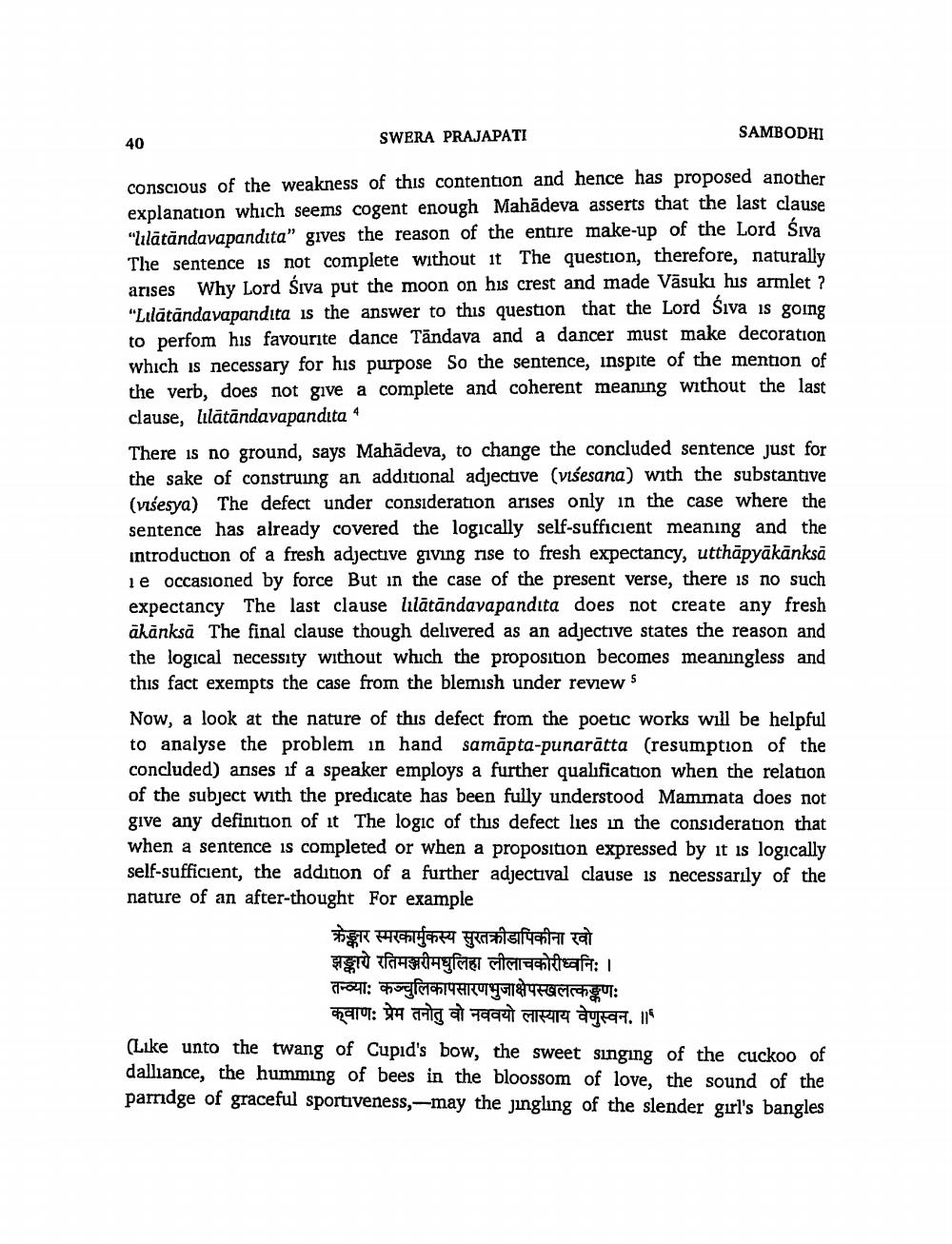________________
SWERA PRAJAPATI
SAMBODHI
40
conscious of the weakness of this contention and hence has proposed another explanation which seems cogent enough Mahadeva asserts that the last clause "lılätändavapandita" gives the reason of the entire make-up of the Lord Siva The sentence is not complete without it The question, therefore, naturally arises Why Lord Siva put the moon on his crest and made Väsuki his armlet ? "Lilātandavapandita is the answer to this question that the Lord Siva is going to perfom his favourite dance Tändava and a dancer must make decoration which is necessary for his purpose So the sentence, inspite of the mention of the verb, does not give a complete and coherent meaning without the last clause, lilātāndavapandita There is no ground, says Mahadeva, to change the concluded sentence just for the sake of construing an additional adjective (višesana) with the substantive (vibesya) The defect under consideration arises only in the case where the sentence has already covered the logically self-sufficient meaning and the introduction of a fresh adjective giving rise to fresh expectancy, utthāpyākānksā le occasioned by force But in the case of the present verse, there is no such expectancy The last clause lılātāndavapandita does not create any fresh ākānksā The final clause though delivered as an adjective states the reason and the logical necessity without which the proposition becomes meaningless and this fact exempts the case from the blemish under reviews Now, a look at the nature of this defect from the poetic works will be helpful to analyse the problem in hand samāpta-punarätta (resumption of the concluded) anses of a speaker employs a further qualification when the relation of the subject with the predicate has been fully understood Mammata does not give any definition of it The logic of this defect lies in the consideration that when a sentence is completed or when a proposition expressed by it is logically self-sufficient, the addition of a further adjectival clause is necessarily of the nature of an after-thought For example
क्रेङ्कार स्मरकार्मुकस्य सुरतक्रीडापिकीना रवो झङ्काये रतिमञ्जरीमधुलिहा लीलाचकोरीध्वनिः । तन्व्याः कञ्चुलिकापसारणभुजाक्षेपस्खलत्कङ्कणः क्वाणः प्रेम तनोतु वो नववयो लास्याय वेणुस्वन. ॥
(Like unto the twang of Cupid's bow, the sweet singing of the cuckoo of dalliance, the humming of bees in the bloossom of love, the sound of the parridge of graceful sportiveness, -may the jingling of the slender girl's bangles




